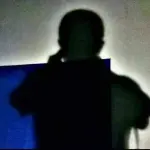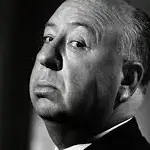Black Mirror has reached its sixth season with a consistently declined rating. How did this once extraordinary show become mediocre?
Firstly, how did Black Mirror get its name? The concept behind the name has various interpretations. One is that it refers to the reflection of oneself on the turned-off screens of phones, tablets, and televisions, metaphorically representing the negative impact of technology on human life. Another explanation is that it alludes to the dark lens of photography and filming, symbolizing the manipulation of human behavior in media or social communication. As the sole writer of the series, Charlie Brooker, who majored in media studies at the University of Westminster, had a background in writing technology and media columns before creating Black Mirror. Therefore, both interpretations are convincing.
Regardless, the initial two seasons of Black Mirror received extensive praise for several reasons. Firstly, as a seasoned media professional, the writer possessed a keen insight and reflection on mass communication and technological advancements. Each episode focused on the core of social issues, hitting the nail on the head. Secondly, the futuristic settings depicted in Black Mirror's stories continue to manifest in present-day life, as if the warnings presented by the show a decade ago are constantly being realized. Thus, what was once considered merely a science fiction allegory may now be viewed, from the current perspective, as prophetic, further enhancing the greatness and foresight of Black Mirror.

Therefore, when fast-forwarding to the sixth season, one can't help to say, "What is this rubbish they're filming?"
Firstly, the sixth season has largely detached itself from technology and gradually moved towards fantasy. Although the first episode, "Streamberry," still had some connection to future technology, but the second episode delved into the past, the third episode took place in a retro-futuristic parallel universe, the fourth episode became an offshoot of "Twilight," and the fifth episode made me wonder if I had somehow stumbled into Guillermo del Toro's "Cabinet of Curiosities."
Secondly, the depth of the story has noticeably diminished. Although each episode still maintains a runtime of around 60 minutes, the core substance of the stories can’t sustain such length. Many episodes (except for episodes 1 and 3) are filled with a significant amount of inefficient dialogue and scenes that fail to drive the plot forward.

Furthermore, the most fatal flaw, perhaps, is that the storyline goes against the flow of logic. The weakening of twists and ending has resulted in hasty and unsatisfying conclusions, giving off a sense of forced reversals for the sake of reversals.
Some argue that this is due to the differing production philosophies between British and American television shows,it maybe true.
It is widely known that starting from the third season, Black Mirror's copyrights were sold to Netflix, and from that moment on, the series inevitably began to suffer from a decline in quality. Just like in S03E02's "Playtest," where the protagonist's life abruptly ends 0.4 seconds after putting on the gaming device, and everything that follows is merely a series of ripples created by the stimulation of his nervous system. His mind is manipulated, and his physical body has long been deceased.
Likewise, from the moment Netflix acquired the production rights of Black Mirror, it became akin to the protagonist wearing the gaming device, generating mere ripples. During the Netflix era, Black Mirror seemed to repetitively combination of old ideas, concepts, and stories. Netflix made every effort to save Black Mirror, attempting to prolong its lifespan and sustain the IP, which led to the release of the sixth season after a three-year delay. However, in the end, it proved to be another unsuccessful attempt.
The production models in the UK and the US are also different. American television shows are driven by major studios and audience demands, focusing more on market. The ownership of intellectual property is typically controlled by the production companies, and if they notice a positive market response, they will quickly replicate the success, aiming to maximize the commercial value of each IP in a short period.
British television operates under a creative-led system where the ownership of the intellectual property is more inclined towards the creators (partly due to the absence of dominant production companies in the UK). This gives the creators more power. Typically, British shows have longer pre-production cycles, and the scriptwriting process and production costs are higher compared to American shows.
For long-running series that have been successful for over a decade or even several decades, they have gained many loyal audiences and core cast members, making the costs manageable during the production cycle. However, for newer shows, the investment risk is higher as there is no guarantee of audience satisfaction, and British shows do not have the concept of pilot episodes like American shows do. Therefore, there is a greater upfront investment risk involved.
To attract viewers to the greatest extent while minimizing cost risks, the fundamental principle of traditional British show production is to be "compact and impactful". The aim is to uncover depth while working within compressed timelines and budgets. This is why we often find that British shows have only a brief season of 6 or even 3 episodes, and the next season requires a long wait or may even disappear without any updates, such as the case with Sherlock, where there has been no news after the fourth season.
Furthermore, as a country with a well-developed theater industry, the British film and television industry is heavily influenced by the stage show. There are meticulous requirements for the script's text, the presentation of performances, and the handling of actors, particularly in the attitude towards dialogue. The majority of top-tier British actors come from privileged backgrounds or have received higher education, rather than being only trained in acting. Therefore, the diversity of acting skills and interpretations of scripts reaches levels that internet companies may find difficult to comprehend and embody.
Black Mirror, as a classic British satirical anthology series, is a metaphor for human life being controlled and manipulated by technology and media, ultimately leading to darkness. It has finally realized its own predictions and become just another member among the numerous intellectual properties within internet conglomerates. In this sense, Black Mirror is undoubtedly a great work.

But what does the future hold for Black Mirror? Perhaps it will become like the mother trapped inside a teddy bear in S04E06 "Black Museum," abandoned by children in a pile of toys, lonely and calling out "Monkey loves you," waiting to be rescued by others. But perhaps it can become like the daughter in S04E02 "Arkangel," breaking free from the mother's excessive protection, confronting the darkness and bloodshed of the self, bravely exploring the path that truly belongs to oneself, engaging in critical thinking, questioning, challenging, and growing.
I remain hopeful, eagerly anticipating a return to the brilliance of Black Mirror's first season in the upcoming installment.



















![How The Godfather’s opening scene lays the groundwork for this epic movie?[1/2]](https://img.peliplat.com/api/resize/v1?imagePath=peliplat/article/20230428/b86deaffbc5fd9d5a14e3558ed47a00f.png&source=s3-peliplat&mode=FILL&width=720&height=340&limit=false)


































Share your thoughts!
Be the first to start the conversation.